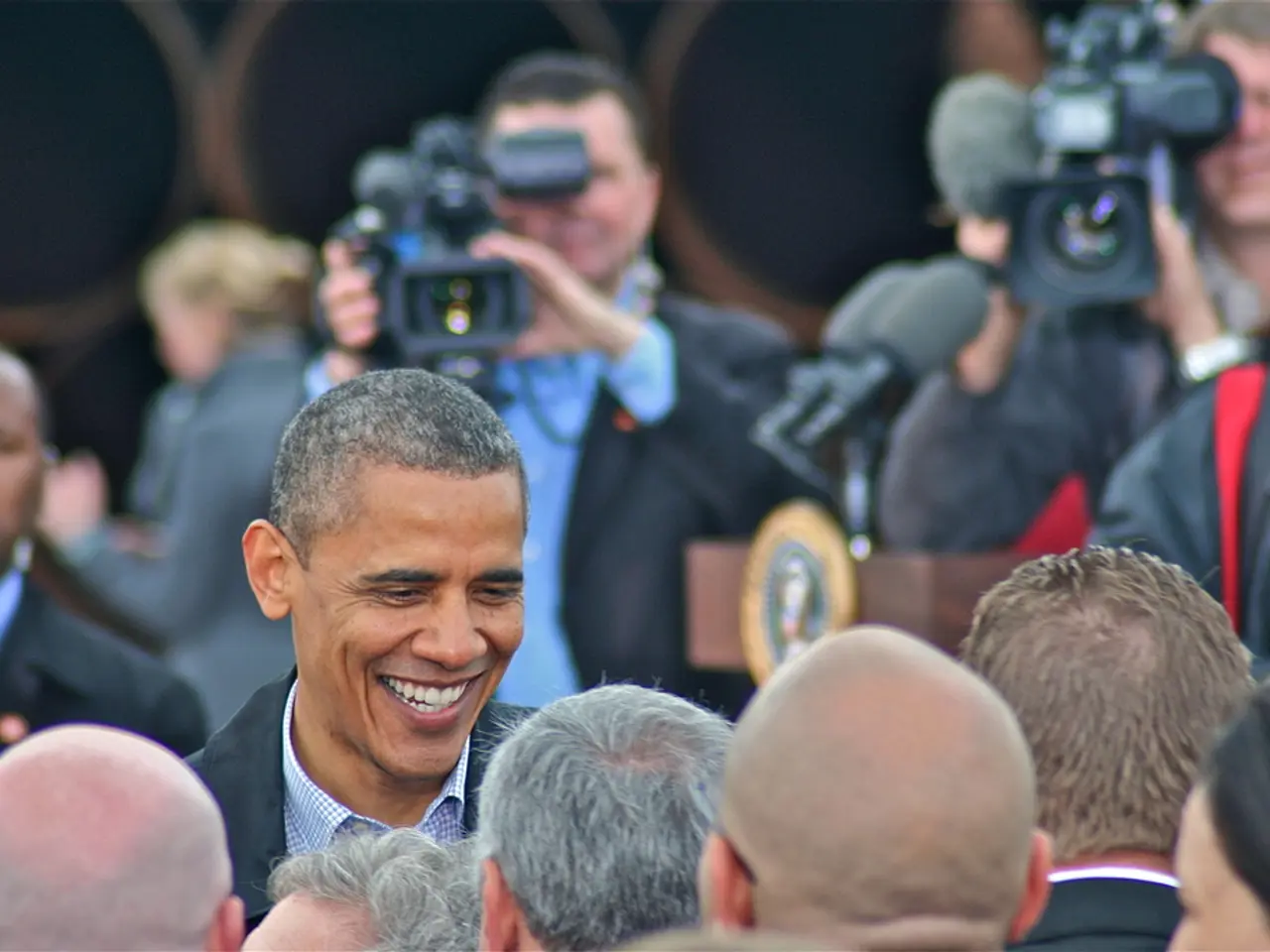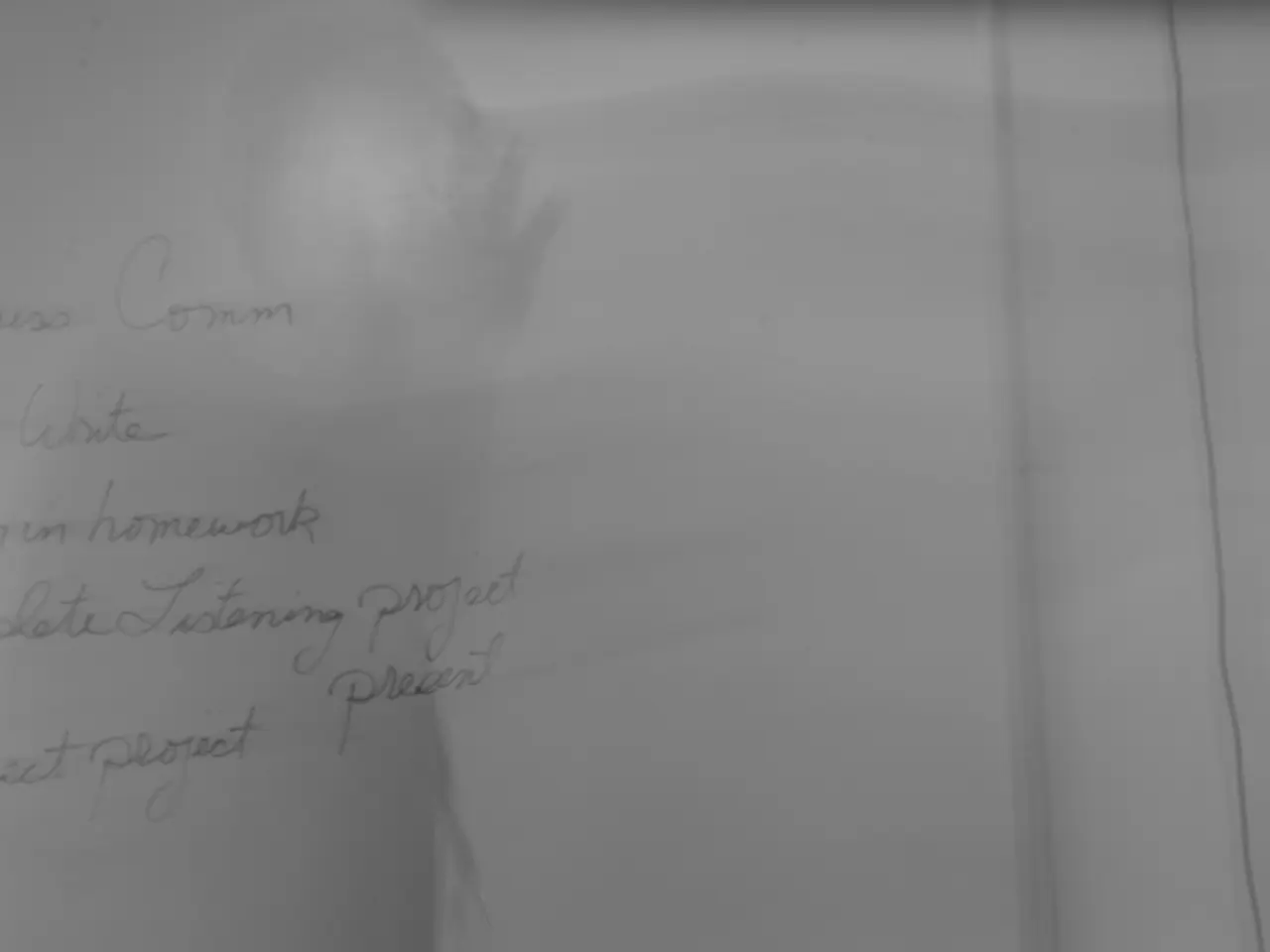Investigative committee to hear testimony from Schröder via video link.
In a series of developments, former German Chancellor Gerhard Schröder has agreed to testify before the investigative committee of the Schwerin state parliament regarding the Climate and Environmental Protection Foundation. The testimony, scheduled for October 17, will take place via video link from Schröder's office in Hannover, following a proposed compromise after the committee demanded a medical certificate by August 31.
The dispute over public access to Schröder's testimony has been a subject of debate, with several factors potentially influencing the decision. These include legal and privacy concerns, political sensitivity, balancing public interest with the need for confidentiality, and the highly politicized nature of the Nord Stream 2 project.
Schröder's involvement with Nord Stream 2, a pipeline between Russia and Germany, is one of the issues being investigated by the committee. His post-government career, which includes his role as chairman of the supervisory board of Nord Stream 2 AG, has been controversial. If the testimony contains sensitive information, there might be interested parties seeking to keep certain details confidential for strategic reasons.
The Climate and Environmental Protection MV foundation, established at the beginning of 2021 and now led by a new board, was set up to secure the completion of Nord Stream 2. The foundation, endowed with 20 million euros by Nord Stream 2 AG, is now seeking to withdraw from the state as the founding entity. The state's complete withdrawal from the foundation is another point of contention.
Opposition parties in Schwerin hope a direct interrogation of Schröder will provide insights into possible Russian influence on decisions by the government of Mecklenburg-Vorpommern. The Greens parliamentary group finds a non-public interrogation of Schröder unacceptable, emphasizing the importance of Schröder's connections to Nord Stream 2 and his contacts with Russian President Vladimir Putin.
Committee chairman Sebastian Ehlers reacted skeptically to the demand for exclusion of the public, stating that publicity is a central principle of parliamentary investigative committees. Hans-Peter Huber, Schröder's lawyer, has set conditions for the testimony, including allowing Schröder to take breaks.
Schröder was diagnosed with burnout in the spring and was unable to attend a hearing in Schwerin. The transmission will take place without public access. The exact nature of the dispute and any relevant legal or political context could provide a more detailed explanation for the controversy surrounding public access to Schröder's testimony.
- The highly politicized nature of the Nord Stream 2 project, a pipeline between Russia and Germany, has raised concerns about potential Russian influence on decisions by the government of Mecklenburg-Vorpommern, leading to the investigation of Schröder's involvement and his connections to Nord Stream 2 and Russian President Vladimir Putin.
- As the Schwerin state parliament investigative committee delves into the role of policy and legislation in war-and-conflicts, crime-and-justice, and general news, the question of public access to Schröder's testimony, despite the political sensitivity and privacy concerns involved, remains a subject of debate due to the importance of transparency in parliamentary investigative committees.
- The withdrawal of the Climate and Environmental Protection MV foundation, established to secure the completion of Nord Stream 2 and endowed with 20 million euros by Nord Stream 2 AG, from the state as the founding entity, and the state's complete withdrawal from the foundation, are additional points of contention that may shed light on the complex web of politics and migration surrounding the pipeline.





